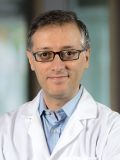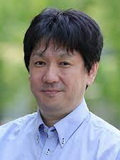![]()



Christel Bergström, Uppsala University, Sweden
 Dr Bergström is a Professor in Molecular Pharmaceutics at Uppsala University, Sweden, and adjunct Professor at Monash University, Australia. She is heading a research group of ~25 people focusing on the delivery of problematic compounds (poorly solubles, biologics). Her expertise area is within advanced drug delivery systems with a focus on biorelevant profiling, computational prediction and novel manufacturing techniques. She is the Center Director of The Swedish Drug Delivery Center – an academic-industry partnership with 16 industrial partners from Sweden, Denmark, Finland and Belgium. Dr Bergström has attracted funding to her research program from highly competitive sources, including the European Research Council (3), the Swedish Research Council (7), the National Institute of Health and the Swedish Foundation for Strategic Research. She has published >130 papers and book chapters and has been cited >7100 times (h-index of 46). Dr Bergström is a cofounder of the Nordic Pharma Network and an EXCO member of the Nordic University Hub within patient-oriented products (the Nordic POP initiative). She is also an EXCO member of the Globalization Pharmaceutics Education Network. She has founded three companies supporting companies in the drug delivery and development area. In 2017, she was elected Associate Dean of collaboration (Medicine and Pharmacy) at Uppsala University. In this role, she is engaged in outreach activities, identification and establishment of strategic partnerships, interactions with governmental departments of importance for health and education, as well as increasing the academic awareness of the innovation system. In 2018, she became associate editor for the journal Molecular Pharmaceutics and is a sought for member of grant evaluation panels and scientific advisory boards.
Dr Bergström is a Professor in Molecular Pharmaceutics at Uppsala University, Sweden, and adjunct Professor at Monash University, Australia. She is heading a research group of ~25 people focusing on the delivery of problematic compounds (poorly solubles, biologics). Her expertise area is within advanced drug delivery systems with a focus on biorelevant profiling, computational prediction and novel manufacturing techniques. She is the Center Director of The Swedish Drug Delivery Center – an academic-industry partnership with 16 industrial partners from Sweden, Denmark, Finland and Belgium. Dr Bergström has attracted funding to her research program from highly competitive sources, including the European Research Council (3), the Swedish Research Council (7), the National Institute of Health and the Swedish Foundation for Strategic Research. She has published >130 papers and book chapters and has been cited >7100 times (h-index of 46). Dr Bergström is a cofounder of the Nordic Pharma Network and an EXCO member of the Nordic University Hub within patient-oriented products (the Nordic POP initiative). She is also an EXCO member of the Globalization Pharmaceutics Education Network. She has founded three companies supporting companies in the drug delivery and development area. In 2017, she was elected Associate Dean of collaboration (Medicine and Pharmacy) at Uppsala University. In this role, she is engaged in outreach activities, identification and establishment of strategic partnerships, interactions with governmental departments of importance for health and education, as well as increasing the academic awareness of the innovation system. In 2018, she became associate editor for the journal Molecular Pharmaceutics and is a sought for member of grant evaluation panels and scientific advisory boards.
Ana Budimir, Department of Clinical Microbiology, Infection Prevention and Control University Hospital Centre Zagreb, Croatia
 Ana Budimir (MD, PhD) ) is a Full Professor of Clinical Microbiology University of Zagreb School of Medicine since 2019. Head of the Healthcare-associated Infection committee, Ministry of Health Republic of Croatia. The main areas of her scientific interest are infection control, surveillance of hospital-acquired infections, resistance mechanisms, MRSA, C. diff, typing, molecular microbiology, and dental microbiology. Editor and author of numerous papers and books in clinical microbiology, infection control and hospital epidemiology. Involved in many European studies and projects on training, prevention and transmission of HAI. Ana Budimir is currently (since 2021) a head of the Department of Clinical and Molecular Microbiology at University Hospital Centre Zagreb.Author and co-author of more than 140 papers listed in international journal databases. Listed in World's Top 2% Scientists by Stanford University in year 2021 and in the whole career. Graduated from the University of Zagreb Medical School in 1997. Defended PhD thesis in 2006. Born in 1973, married, mother of three. .
Ana Budimir (MD, PhD) ) is a Full Professor of Clinical Microbiology University of Zagreb School of Medicine since 2019. Head of the Healthcare-associated Infection committee, Ministry of Health Republic of Croatia. The main areas of her scientific interest are infection control, surveillance of hospital-acquired infections, resistance mechanisms, MRSA, C. diff, typing, molecular microbiology, and dental microbiology. Editor and author of numerous papers and books in clinical microbiology, infection control and hospital epidemiology. Involved in many European studies and projects on training, prevention and transmission of HAI. Ana Budimir is currently (since 2021) a head of the Department of Clinical and Molecular Microbiology at University Hospital Centre Zagreb.Author and co-author of more than 140 papers listed in international journal databases. Listed in World's Top 2% Scientists by Stanford University in year 2021 and in the whole career. Graduated from the University of Zagreb Medical School in 1997. Defended PhD thesis in 2006. Born in 1973, married, mother of three. .
Biserka Cetina-Čižmek, PLIVA R&D, Croatia
 Biserka Cetina-Čižmek has been working at GR&D PLIVA pharmaceutical company in Croatia, a member of the Teva group for the last twenty years. Her current position is Senior Director and head of the Preformulation Department. She is a pharmacist by education. She finished Ph.D. in Pharmaceutical science and became a Professor in the field of Pharmaceutical sciences at the Faculty of Pharmacy and Biochemistry University of Zagreb. Since 2007, she has worked as Professor of Industrial Pharmacy. Her scientific background is in the field of preformulation studies in drug development of solid dosage forms, semisolid and liquid, development of in vitro methodology to predict in vivo drug behavior, IVIV correlation, characterization of drug molecules, and BCS classification. She is the author and co-author of 50 scientific papers, 56 posters and 22 oral presentations, 3 patent applications and a mentor of 22 graduated and 3 postgraduate students.
Biserka Cetina-Čižmek has been working at GR&D PLIVA pharmaceutical company in Croatia, a member of the Teva group for the last twenty years. Her current position is Senior Director and head of the Preformulation Department. She is a pharmacist by education. She finished Ph.D. in Pharmaceutical science and became a Professor in the field of Pharmaceutical sciences at the Faculty of Pharmacy and Biochemistry University of Zagreb. Since 2007, she has worked as Professor of Industrial Pharmacy. Her scientific background is in the field of preformulation studies in drug development of solid dosage forms, semisolid and liquid, development of in vitro methodology to predict in vivo drug behavior, IVIV correlation, characterization of drug molecules, and BCS classification. She is the author and co-author of 50 scientific papers, 56 posters and 22 oral presentations, 3 patent applications and a mentor of 22 graduated and 3 postgraduate students.
Gaia Colombo, University of Ferrara, Italy
 Gaia Colombo, Ph.D., was born in Italy in 1976. In 2001 she graduated in Pharmaceutical Chemistry and Technology at the University of Parma (Italy), after an 8-month research internship at the Faculty of Pharmacy, University of South Paris XI (France). From 2002 to 2004 she was granted of a PhD scholarship from the University of Parma, allowing her to be appointed for 18 months at Massachusetts Institute of Technology (Cambridge, MA, USA) in prof. Robert Langer’s group, where she worked on delivery systems for prolonged local anesthesia. She got her PhD degree in “Biopharmaceutics and Pharmacokinetics” from the University of Parma in 2005.Since April 2016 she is permanently appointed as an Associate Professor by the Dept. of Life Sciences and Biotechnology (Degree in Pharmacy), University of Ferrara (Italy). She teaches “Pharmaceutical Technology” for the undergraduate Pharmacy program and supervises students for professional internships in pharmacies. In 2016-21 she served as Deputy Rector of Internationalization. She has supervised >100 Master student theses as well as 3 Ph.D. students. Her research interests mainly focus on transmucosal (nasal, buccal), respiratory and oral drug delivery. In 2008-10, she participated in a project funded by CARISBO Foundation on nose-to-brain delivery of antivirals in veterinary viral encephalitis. She was PI of a project “FIRB 2010” funded by Italian Ministry of Research, University and Education. She was funded by the Emilia-Romagna Region for a project on in vitro methods for antiviral drug assessment together with the Lombardy and Emilia Romagna Experimental Zootechnic Institute (IZSLER) and the Universities of Bologna and Parma. Prof. Colombo has published 73 papers, as well as 5 patents and 9 book chapters. She has been invited as lecturer by several academic and non-academic institutions in Italy, France, Greece, Spain, Portugal, Switzerland, USA, Canada, Brazil, Malaysia, Turkey, Australia. In 2006, she founded the “AAPS Italian University Network Student Chapter” (A.It.U.N.), the first European chapter of the American Association of Pharmaceutical Scientists, for which she served as Chair in 2006-07. Between 2007-2013, she served the Italian Agency for Medicines (AIFA, Agenzia Italiana del Farmaco) as a qualified expert for the evaluation of the Quality section (Module 3) of CTDs. She is currently Associate Editor for Drug Development and Industrial Pharmacy and a member of the Editorial Board of journals in the Pharmacology & Pharmacy category. In 2018, she received the EUFEPS 2018 Women in Pharmaceutical Sciences Award.
Gaia Colombo, Ph.D., was born in Italy in 1976. In 2001 she graduated in Pharmaceutical Chemistry and Technology at the University of Parma (Italy), after an 8-month research internship at the Faculty of Pharmacy, University of South Paris XI (France). From 2002 to 2004 she was granted of a PhD scholarship from the University of Parma, allowing her to be appointed for 18 months at Massachusetts Institute of Technology (Cambridge, MA, USA) in prof. Robert Langer’s group, where she worked on delivery systems for prolonged local anesthesia. She got her PhD degree in “Biopharmaceutics and Pharmacokinetics” from the University of Parma in 2005.Since April 2016 she is permanently appointed as an Associate Professor by the Dept. of Life Sciences and Biotechnology (Degree in Pharmacy), University of Ferrara (Italy). She teaches “Pharmaceutical Technology” for the undergraduate Pharmacy program and supervises students for professional internships in pharmacies. In 2016-21 she served as Deputy Rector of Internationalization. She has supervised >100 Master student theses as well as 3 Ph.D. students. Her research interests mainly focus on transmucosal (nasal, buccal), respiratory and oral drug delivery. In 2008-10, she participated in a project funded by CARISBO Foundation on nose-to-brain delivery of antivirals in veterinary viral encephalitis. She was PI of a project “FIRB 2010” funded by Italian Ministry of Research, University and Education. She was funded by the Emilia-Romagna Region for a project on in vitro methods for antiviral drug assessment together with the Lombardy and Emilia Romagna Experimental Zootechnic Institute (IZSLER) and the Universities of Bologna and Parma. Prof. Colombo has published 73 papers, as well as 5 patents and 9 book chapters. She has been invited as lecturer by several academic and non-academic institutions in Italy, France, Greece, Spain, Portugal, Switzerland, USA, Canada, Brazil, Malaysia, Turkey, Australia. In 2006, she founded the “AAPS Italian University Network Student Chapter” (A.It.U.N.), the first European chapter of the American Association of Pharmaceutical Scientists, for which she served as Chair in 2006-07. Between 2007-2013, she served the Italian Agency for Medicines (AIFA, Agenzia Italiana del Farmaco) as a qualified expert for the evaluation of the Quality section (Module 3) of CTDs. She is currently Associate Editor for Drug Development and Industrial Pharmacy and a member of the Editorial Board of journals in the Pharmacology & Pharmacy category. In 2018, she received the EUFEPS 2018 Women in Pharmaceutical Sciences Award.
Stefan Dove, University of Regensburg, Germany
 1949 born in Jena. 1970-74 bioche¬mistry studies at Martin-Luther-Univ. Halle, 1974 diploma. 1974-91 PhD student, postdoc and senior scientist, respectively, at Inst. of Drug Research Berlin, Academy of Sciences of the GDR. 1978 PhD., 1990 Doctor of Sciences (Dr.sc.nat.) in theoretical pharmacology. 1992-2014 senior scientist, univ. lecturer (1994) and assoc. professor (2000), respectively, at Dept. of Med./Pharm. Chem., Inst. of Pharmacy, Univ. Regensburg. 1993 habilitation in medicinal chemistry. Since 2015 retired, further lectureships in medicinal chemistry and computer-assisted drug research. Research fields: QSAR (multivariate statistical methods, 3D-QSAR, beta-blockers with vasodilating properties, enzyme inhibitors). Modeling of ligand-target interactions (NPY, beta-adrenergic, histamine and 5-HT2A receptors, adenylyl cyclases, phosphodiesterases, tyrosine kinases, histone deacetylases). Receptor theory (mathematical models of beta-adrenoceptor and estrogen receptor activation).
1949 born in Jena. 1970-74 bioche¬mistry studies at Martin-Luther-Univ. Halle, 1974 diploma. 1974-91 PhD student, postdoc and senior scientist, respectively, at Inst. of Drug Research Berlin, Academy of Sciences of the GDR. 1978 PhD., 1990 Doctor of Sciences (Dr.sc.nat.) in theoretical pharmacology. 1992-2014 senior scientist, univ. lecturer (1994) and assoc. professor (2000), respectively, at Dept. of Med./Pharm. Chem., Inst. of Pharmacy, Univ. Regensburg. 1993 habilitation in medicinal chemistry. Since 2015 retired, further lectureships in medicinal chemistry and computer-assisted drug research. Research fields: QSAR (multivariate statistical methods, 3D-QSAR, beta-blockers with vasodilating properties, enzyme inhibitors). Modeling of ligand-target interactions (NPY, beta-adrenergic, histamine and 5-HT2A receptors, adenylyl cyclases, phosphodiesterases, tyrosine kinases, histone deacetylases). Receptor theory (mathematical models of beta-adrenoceptor and estrogen receptor activation).
Hadi Beitollahi, Graduate University of Advanced Technology, Kerman, Iran
 Hadi Beitollahi received his Ph.D. from the Department of Chemistry of the Yazd University, Iran, in 2011. He is a professor in analytical chemistry at the Environment Department, Institute of Science and High Technology and Environmental Sciences, Graduate University of Advanced Technology, Kerman, Iran. His research interest includes development of chemically modified electrodes and their application in electrochemical analysis and nanoelectrochemistry. He has authored/co-authored about 400 articles published in international journals.
Hadi Beitollahi received his Ph.D. from the Department of Chemistry of the Yazd University, Iran, in 2011. He is a professor in analytical chemistry at the Environment Department, Institute of Science and High Technology and Environmental Sciences, Graduate University of Advanced Technology, Kerman, Iran. His research interest includes development of chemically modified electrodes and their application in electrochemical analysis and nanoelectrochemistry. He has authored/co-authored about 400 articles published in international journals.
Geoff Holdgate, AstraZeneca, UK
 Geoff joined AstraZeneca’s predecessor ICI in 1992. He was responsible for establishing Isothermal Titration Calorimetry and Surface Plasmon Resonance into Zeneca in the mid-1990s. Geoff has led both molecular enzymology and biophysics teams and, more recently, the HTS department before being promoted to Senior Principal Scientist in Hit Discovery in 2021. Geoff has contributed to discovery of several marketed drugs, including Iressa, Crestor, Caprelsa, Koselugo and Tagrisso. He has contributed to over 40 original research articles, reviews and book chapters, with an h-index of 28. He sits on the editorial boards for ADMET & DMPK and SLAS Discovery. Geoff is a regular reviewer for journals including Scientific Reports, J. Med. Chem., Drug Discovery Today, Biochemical Pharmacology and European Biophysics Journal. In 2017, he was awarded the SLAS Reviewer Excellence Award and was made a Fellow of SLAS in 2022. Geoff regularly organises and presents at external meetings, including the ELRIG Discovery Technologies meetings and the Next Generation Biophysics Meeting.
Geoff joined AstraZeneca’s predecessor ICI in 1992. He was responsible for establishing Isothermal Titration Calorimetry and Surface Plasmon Resonance into Zeneca in the mid-1990s. Geoff has led both molecular enzymology and biophysics teams and, more recently, the HTS department before being promoted to Senior Principal Scientist in Hit Discovery in 2021. Geoff has contributed to discovery of several marketed drugs, including Iressa, Crestor, Caprelsa, Koselugo and Tagrisso. He has contributed to over 40 original research articles, reviews and book chapters, with an h-index of 28. He sits on the editorial boards for ADMET & DMPK and SLAS Discovery. Geoff is a regular reviewer for journals including Scientific Reports, J. Med. Chem., Drug Discovery Today, Biochemical Pharmacology and European Biophysics Journal. In 2017, he was awarded the SLAS Reviewer Excellence Award and was made a Fellow of SLAS in 2022. Geoff regularly organises and presents at external meetings, including the ELRIG Discovery Technologies meetings and the Next Generation Biophysics Meeting.
Josef Jampilek, Faculty of Pharmacy, Comenius University in Bratislava, Slovakia, Slovakia
 Josef Jampilek completed his Ph.D. degree in Medicinal Chemistry at the Faculty of Pharmacy of the Charles University (Czechia) in 2004. In 2004-2011, he worked in expert and managerial posts in the R&D Division of the pharmaceutical company Zentiva (Czechia). Prof. Jampilek deepened his professional knowledge at the Medicinal Chemistry Institute of the Heidelberg University (Germany) and at multiple specialized courses. In 2017, he was designated as a Full Professor of Medicinal Chemistry. He works at the Faculty of Natural Sciences of the Comenius University in Bratislava (Slovakia) and the Faculty of Science of the Palacky University in Olomouc (Czechia). In addition, he is a visiting professor at several universities and an invited professor/expert at various higher educational institutions. He is an author/co-author of more than 35 patents/patent applications, more than 260 peer-reviewed scientific publications, 11 textbooks, more than 50 chapters in monographs, and many invited lectures at international conferences and workshops. He also received several awards for his scientific results, e.g., from Aventis, Elsevier, Willey, Sanofi and FDA. Prof. Jampilek is also an editor, guest editor and member of the editorial boards of several renowned international scientific journals. The research interests of Prof. Jampilek include drug design, medicinal chemistry, chemical biology as well as drug delivery nanosystems. He is also interested in ADME and solid-state pharmaceutical analysis.
Josef Jampilek completed his Ph.D. degree in Medicinal Chemistry at the Faculty of Pharmacy of the Charles University (Czechia) in 2004. In 2004-2011, he worked in expert and managerial posts in the R&D Division of the pharmaceutical company Zentiva (Czechia). Prof. Jampilek deepened his professional knowledge at the Medicinal Chemistry Institute of the Heidelberg University (Germany) and at multiple specialized courses. In 2017, he was designated as a Full Professor of Medicinal Chemistry. He works at the Faculty of Natural Sciences of the Comenius University in Bratislava (Slovakia) and the Faculty of Science of the Palacky University in Olomouc (Czechia). In addition, he is a visiting professor at several universities and an invited professor/expert at various higher educational institutions. He is an author/co-author of more than 35 patents/patent applications, more than 260 peer-reviewed scientific publications, 11 textbooks, more than 50 chapters in monographs, and many invited lectures at international conferences and workshops. He also received several awards for his scientific results, e.g., from Aventis, Elsevier, Willey, Sanofi and FDA. Prof. Jampilek is also an editor, guest editor and member of the editorial boards of several renowned international scientific journals. The research interests of Prof. Jampilek include drug design, medicinal chemistry, chemical biology as well as drug delivery nanosystems. He is also interested in ADME and solid-state pharmaceutical analysis.
Manfred Kansy, Freiburg im Breisgau, Germany
 After his retirement in 2021, Dr Kansy is now part time working as an independent consultant in Life Sciences with focus on compound property related characterization and candidate selection of drug molecules in early to late-stage preclinical R & D. He is particularly interested in computational predictions systems and strategies that combine computational techniques with wet-lab characterization tools for state-of-the-art resources and cost-effective screening, to overcome identified issues of preclinical HT-screening and associated outsourcing strategies.During his more than 30-year career at F. Hoffmann-La Roche Ltd. in Basel, Switzerland, Dr. Kansy held several leading positions dealing with various aspects of drug discovery and development, informatics, and bioinformatics. The main interest of his work was directed to physicochemical profiling of drug candidates, development of computer-aided system to predict ADMET properties using data-driven self-optimizing AI systems. Dr. Kansy received his PhD in pharmaceutical chemistry from Kiel University, Germany. He conducted postdoctoral research at the Leibnitz Center for Medicine and Biosciences in Borstel, Germany, combined with a short research stay at the Central Drug Research Institute in Lucknow, India. Dr. Kansy is author and co-author of more than 90 research papers and patent applications in the field of compound characterization, physicochemistry, computational ADMET, cited almost 10000 times. With his team, he was instrumental in building the first informatics tools and infrastructure for computational drug property and ADMET predictions at F. Hoffmann-La Roche. Building on his extensive knowledge of quantitative structure-activity relationship (QSAR) acquired at Leibnitz Center, he and his team developed the first tools for automated data analysis and computational model development using multivariate statistical tools. Dr. Kansy has coordinated the Safety Science Education Program (SafeSciMET) within the European Innovative Medicine Initiative (IMI). In 2005, Dr. Kansy received the New Safe Medicines Faster Award (NSMF) from the European Federation of Pharmaceutical Sciences (EUFEPS) for the development and introduction of the PAMPA screening method together with Prof. Per Artursson, Uppsala University, Sweden, who was awarded for the application of the Caco-2 system in drug profiling.
After his retirement in 2021, Dr Kansy is now part time working as an independent consultant in Life Sciences with focus on compound property related characterization and candidate selection of drug molecules in early to late-stage preclinical R & D. He is particularly interested in computational predictions systems and strategies that combine computational techniques with wet-lab characterization tools for state-of-the-art resources and cost-effective screening, to overcome identified issues of preclinical HT-screening and associated outsourcing strategies.During his more than 30-year career at F. Hoffmann-La Roche Ltd. in Basel, Switzerland, Dr. Kansy held several leading positions dealing with various aspects of drug discovery and development, informatics, and bioinformatics. The main interest of his work was directed to physicochemical profiling of drug candidates, development of computer-aided system to predict ADMET properties using data-driven self-optimizing AI systems. Dr. Kansy received his PhD in pharmaceutical chemistry from Kiel University, Germany. He conducted postdoctoral research at the Leibnitz Center for Medicine and Biosciences in Borstel, Germany, combined with a short research stay at the Central Drug Research Institute in Lucknow, India. Dr. Kansy is author and co-author of more than 90 research papers and patent applications in the field of compound characterization, physicochemistry, computational ADMET, cited almost 10000 times. With his team, he was instrumental in building the first informatics tools and infrastructure for computational drug property and ADMET predictions at F. Hoffmann-La Roche. Building on his extensive knowledge of quantitative structure-activity relationship (QSAR) acquired at Leibnitz Center, he and his team developed the first tools for automated data analysis and computational model development using multivariate statistical tools. Dr. Kansy has coordinated the Safety Science Education Program (SafeSciMET) within the European Innovative Medicine Initiative (IMI). In 2005, Dr. Kansy received the New Safe Medicines Faster Award (NSMF) from the European Federation of Pharmaceutical Sciences (EUFEPS) for the development and introduction of the PAMPA screening method together with Prof. Per Artursson, Uppsala University, Sweden, who was awarded for the application of the Caco-2 system in drug profiling.
Hassan Karimi-Maleh, University of Electronics Science and Technology (UESTC), China
 Hassan Karimi-Maleh works as a professor in the School of Resource and Environment, University of Electronics Science and Technology of China (UESTC). He is a highly cited researcher selected by Clarivate Analytics 2018 (cross-filed), 2019 (Agriculture field) and 2020 (cross-filed), 2021 (Chemistry and Agriculture, two categories in one year) and 2022 (Chemistry and Agriculture, two categories in one year) and Top 1% Scientists in Chemistry and Agriculture simultaneously in ISI Essential Science Indicators from 2014 until now. He has published more than 400 SCI research papers with more than 21800 citations and H-index 92 (according to WOS report) and 27200 citations and h-index 99 (according to Google Scholar). He works on editorial board of more than 20 international journals, such as Alexandria Engineering Journal (co-editor in editor ELSEVIER IF 6.626. He also works as an adjunct Professor at the University of Johannesburg, South Africa, Saveetha School of Engineering, Chennai, Inda and Quchan University of Technology, Quchan, Iran. He worked as a leader nanobiosensor group at Ton Duc Thang University, Vietnam 2019-2020. He published one book with Springer publisher and also one chapter book with the same publisher. Recently, he published a paper in Science journal. He was a plenary speaker at many conferences such as The 8th International Conference on Water Resource and Environment (WRE 2022), the 6th Postgraduate Colloquium for Environmental Research 2022, the 7th International Conference on Agricultural and Biological Science (abs) (2021) and etc. His main research interest includes the development of chemically modified sensors and biosensors using DNA and enzymes as biological recognition elements for food, biological, pharmaceutical and environmental compounds analysis and investigation of electrochemistry behavior of electroactive materials such as polymers, organic and inorganic compounds. Recently, he focused on the synthesis of nanomaterials and their application in drug delivery and energy storage fields. He has a big network that works in 3 different major entities Environmental research group, Energy research group and Sensor research group.
Hassan Karimi-Maleh works as a professor in the School of Resource and Environment, University of Electronics Science and Technology of China (UESTC). He is a highly cited researcher selected by Clarivate Analytics 2018 (cross-filed), 2019 (Agriculture field) and 2020 (cross-filed), 2021 (Chemistry and Agriculture, two categories in one year) and 2022 (Chemistry and Agriculture, two categories in one year) and Top 1% Scientists in Chemistry and Agriculture simultaneously in ISI Essential Science Indicators from 2014 until now. He has published more than 400 SCI research papers with more than 21800 citations and H-index 92 (according to WOS report) and 27200 citations and h-index 99 (according to Google Scholar). He works on editorial board of more than 20 international journals, such as Alexandria Engineering Journal (co-editor in editor ELSEVIER IF 6.626. He also works as an adjunct Professor at the University of Johannesburg, South Africa, Saveetha School of Engineering, Chennai, Inda and Quchan University of Technology, Quchan, Iran. He worked as a leader nanobiosensor group at Ton Duc Thang University, Vietnam 2019-2020. He published one book with Springer publisher and also one chapter book with the same publisher. Recently, he published a paper in Science journal. He was a plenary speaker at many conferences such as The 8th International Conference on Water Resource and Environment (WRE 2022), the 6th Postgraduate Colloquium for Environmental Research 2022, the 7th International Conference on Agricultural and Biological Science (abs) (2021) and etc. His main research interest includes the development of chemically modified sensors and biosensors using DNA and enzymes as biological recognition elements for food, biological, pharmaceutical and environmental compounds analysis and investigation of electrochemistry behavior of electroactive materials such as polymers, organic and inorganic compounds. Recently, he focused on the synthesis of nanomaterials and their application in drug delivery and energy storage fields. He has a big network that works in 3 different major entities Environmental research group, Energy research group and Sensor research group.
Antonio Llinas, AstraZeneca, Sweden
 Dr Llinas is a DMPK Director in AstraZeneca in the Research and Early Development, Respiratory & Immunology Biopharmaceutical Unit. With a PhD in Physical-Organic chemistry. Antonio brings a broad Discovery and Development knowledge from his decade of experience in the Pharmaceutical Industry where he has made significant contributions to more than 60 drug projects from early discovery up to regulatory applications, spanning multiple areas and targets, oral and inhaled, covering both small molecules and “New modalities” space including biologics. Before joining AZ Antonio was a lecturer in several universities around the world, most recent 5 years at the University of Cambridge in UK, where he was an honorary Fellow at the Pfizer Institute for Pharmaceutical Materials Science and the Unilever Centre for Molecular Informatics, where he set up a new PhysChem lab to measure solubilities/dissolution behaviour and fully characterise solid materials. This research was the foundation for the famous “Solubility Challenges” and also produced a new method to generate and control different polymorphs called [PC]2 (Potentiometric Cycling for Polymorph Creation). He is a reviewer and a member of Editorial Boards of many international Journals and co-founder and Chairman of the “PhysChem forum” which he has been organizing and chairing since 2005. Antonio is a regular presenter at international DMPK/ADMET/PhysChem and Drug Discovery and Development related conferences with more than 40 presentations, has more than 60 publications, 7 patents and several book chapters and he is a Project Evaluator of several Research Councils in different countries and European Institutions (i.e. European´s Union Horizon, Marie Curie Framework and PREBIST program). During his career Antonio has mentored and supervised many graduate students, PhDs and PostDocs.
Dr Llinas is a DMPK Director in AstraZeneca in the Research and Early Development, Respiratory & Immunology Biopharmaceutical Unit. With a PhD in Physical-Organic chemistry. Antonio brings a broad Discovery and Development knowledge from his decade of experience in the Pharmaceutical Industry where he has made significant contributions to more than 60 drug projects from early discovery up to regulatory applications, spanning multiple areas and targets, oral and inhaled, covering both small molecules and “New modalities” space including biologics. Before joining AZ Antonio was a lecturer in several universities around the world, most recent 5 years at the University of Cambridge in UK, where he was an honorary Fellow at the Pfizer Institute for Pharmaceutical Materials Science and the Unilever Centre for Molecular Informatics, where he set up a new PhysChem lab to measure solubilities/dissolution behaviour and fully characterise solid materials. This research was the foundation for the famous “Solubility Challenges” and also produced a new method to generate and control different polymorphs called [PC]2 (Potentiometric Cycling for Polymorph Creation). He is a reviewer and a member of Editorial Boards of many international Journals and co-founder and Chairman of the “PhysChem forum” which he has been organizing and chairing since 2005. Antonio is a regular presenter at international DMPK/ADMET/PhysChem and Drug Discovery and Development related conferences with more than 40 presentations, has more than 60 publications, 7 patents and several book chapters and he is a Project Evaluator of several Research Councils in different countries and European Institutions (i.e. European´s Union Horizon, Marie Curie Framework and PREBIST program). During his career Antonio has mentored and supervised many graduate students, PhDs and PostDocs.
Zoran Mandić, University of Zagreb Faculty of Chemical Engineering and Technology, Croatia
 Zoran Mandić is a professor at the Faculty of Chemical Engineering and Technology, University of Zagreb. Currently, he is involved in advanced material research and battery development. After he did his PhD he moved in 1996. to PLIVA d.d. as a research scientist working in the physico-chemical lab, where he developed various methods of physicochemical profiling of biologically active substances, implemented electrochemistry in the synthetic and enzymatic stereoselective organic reactions, and developed electroanalytical methods for the analysis of drug substances. He published more than 50 papers in the highly-ranked scientific journals and he was a principal investigator of several national and international scientific projects.
Zoran Mandić is a professor at the Faculty of Chemical Engineering and Technology, University of Zagreb. Currently, he is involved in advanced material research and battery development. After he did his PhD he moved in 1996. to PLIVA d.d. as a research scientist working in the physico-chemical lab, where he developed various methods of physicochemical profiling of biologically active substances, implemented electrochemistry in the synthetic and enzymatic stereoselective organic reactions, and developed electroanalytical methods for the analysis of drug substances. He published more than 50 papers in the highly-ranked scientific journals and he was a principal investigator of several national and international scientific projects.
Godefridus Peters, VU University Medical Center (VUmc), The Netherlands
 Professor Godefridus (Frits) J. Peters is at the Laboratory Medical Oncology of the VU University Medical Center (VUmc) in Amsterdam, the Netherlands. He studied biology and chemistry at the University of Nijmegen, and did his Ph.D. in 1982. He did several post-docs at the Netherlands Cancer Institute and at the VUmc. In 1986 he received a senior research fellowship of the Royal Netherlands Academy of Arts and Sciences, in 1989 he was appointed as head of the division of (Biochemical) Pharmacology, and was head of the Laboratory Medical Oncology from 2003-2017. He was appointed as associate-professor in 1992 and as full professor in 2003. The research of Prof. Peters is focused on translation of preclinical pharmacology of anticancer agents to the clinic. This included all aspects of drug development of various classes including anti-signalling protein kinase inhibitors, antifolates, antimetabolites, platinum analogs, topoisomerase inhibitors, and taxanes. Prof Peters was involved in several Phase I and 2 studies of drugs now registered for treatment of cancer such as gemcitabine, pemetrexed, erlotinib, while “failed” clinical studies led to the development of successful drugs. Drugs were improved by optimizing drug combinations, proper prodrugs or drug carriers, or by identification of resistance genes. For the latter, analysis of signalling pathways was performed, in relation to expression, mutations and genetic polymorphisms in driver genes, and regulation by miRNAs. Other research interests include regulation of transport (influx and efflux pumps), and metabolism of anticancer drugs, DNA repair, apoptosis and protein processing (proteasome, aminopeptidase, autophagy). These research fields are interconnected by studying the role of phosphorylation by various protein kinases on the function of these pumps (OCTs, MRPs, BCRP). These studies are translated from model systems to the patient and back, in order to provide personalized therapy. Prof. Peters has authored/co-authored >450 refereed research papers and reviews, as well as 171 papers/chapters in books and congress proceedings (H-index 86, citations 36024; Google Scholar), he is/was member of >25 editorial boards, and recently initiated a journal devoted to drug resistance, Cancer Drug Resistance. He was founder and first president of the Purine and Pyrimidine Society (2003-2005) and is currently secretary/treasurer of that group. He was chair of the EORTC-Pharmacology and Molecular Mechanisms (PAMM) Group from 2009-2015, and secretary until 2018 and was member of the EORTC-Translation Research Advisory Committee and of the New Drug Advisory Committee.
Professor Godefridus (Frits) J. Peters is at the Laboratory Medical Oncology of the VU University Medical Center (VUmc) in Amsterdam, the Netherlands. He studied biology and chemistry at the University of Nijmegen, and did his Ph.D. in 1982. He did several post-docs at the Netherlands Cancer Institute and at the VUmc. In 1986 he received a senior research fellowship of the Royal Netherlands Academy of Arts and Sciences, in 1989 he was appointed as head of the division of (Biochemical) Pharmacology, and was head of the Laboratory Medical Oncology from 2003-2017. He was appointed as associate-professor in 1992 and as full professor in 2003. The research of Prof. Peters is focused on translation of preclinical pharmacology of anticancer agents to the clinic. This included all aspects of drug development of various classes including anti-signalling protein kinase inhibitors, antifolates, antimetabolites, platinum analogs, topoisomerase inhibitors, and taxanes. Prof Peters was involved in several Phase I and 2 studies of drugs now registered for treatment of cancer such as gemcitabine, pemetrexed, erlotinib, while “failed” clinical studies led to the development of successful drugs. Drugs were improved by optimizing drug combinations, proper prodrugs or drug carriers, or by identification of resistance genes. For the latter, analysis of signalling pathways was performed, in relation to expression, mutations and genetic polymorphisms in driver genes, and regulation by miRNAs. Other research interests include regulation of transport (influx and efflux pumps), and metabolism of anticancer drugs, DNA repair, apoptosis and protein processing (proteasome, aminopeptidase, autophagy). These research fields are interconnected by studying the role of phosphorylation by various protein kinases on the function of these pumps (OCTs, MRPs, BCRP). These studies are translated from model systems to the patient and back, in order to provide personalized therapy. Prof. Peters has authored/co-authored >450 refereed research papers and reviews, as well as 171 papers/chapters in books and congress proceedings (H-index 86, citations 36024; Google Scholar), he is/was member of >25 editorial boards, and recently initiated a journal devoted to drug resistance, Cancer Drug Resistance. He was founder and first president of the Purine and Pyrimidine Society (2003-2005) and is currently secretary/treasurer of that group. He was chair of the EORTC-Pharmacology and Molecular Mechanisms (PAMM) Group from 2009-2015, and secretary until 2018 and was member of the EORTC-Translation Research Advisory Committee and of the New Drug Advisory Committee.
Christos Reppas, National and Kapodistrian University of Athens, Greece
 Research interests focus to the effects of dosage form characteristics and of gastrointestinal physiology on intraluminal performance of xenobiotics and the development of in vitro tests that are predictive of the intraluminal dosage form and drug performance. He has supervised 13 completed PhD Theses. He is coauthor of more than 160 peer reviewed papers and chapters in international journals and books, two books on Biopharmaceutics and Drug Disposition and one patent. He is member of the editorial board of The AAPS Journal, European Journal of Pharmaceutical Sciences, Journal of Pharmacy and Pharmacology, and Journal of Drug Delivery Science and Technology. He is/has been PI in several EU funded training and research programs (OrBiTo, PEARRL, COLOTAN, InPharma, AGePOP) and one COST action (UNGAP, vice-chair). He is currently Chair of the Department of Pharmacy at NKUA (2022-2024).
Research interests focus to the effects of dosage form characteristics and of gastrointestinal physiology on intraluminal performance of xenobiotics and the development of in vitro tests that are predictive of the intraluminal dosage form and drug performance. He has supervised 13 completed PhD Theses. He is coauthor of more than 160 peer reviewed papers and chapters in international journals and books, two books on Biopharmaceutics and Drug Disposition and one patent. He is member of the editorial board of The AAPS Journal, European Journal of Pharmaceutical Sciences, Journal of Pharmacy and Pharmacology, and Journal of Drug Delivery Science and Technology. He is/has been PI in several EU funded training and research programs (OrBiTo, PEARRL, COLOTAN, InPharma, AGePOP) and one COST action (UNGAP, vice-chair). He is currently Chair of the Department of Pharmacy at NKUA (2022-2024).
Derek Reynolds, Reytek Consulting, UK
 Derek gained his PhD. in mechanistic organic chemistry at the University of Nottingham and joined the Glaxo Group as a medicinal chemist in 1973. He acquired experience in synthetic chemistry, spectroscopy, and pharmaceutical analysis and managed teams working in respiratory and cardiovascular drug discovery. In 1990 he was appointed UK Head of Structural Chemistry for Glaxo Group Research. After the formation of GlaxoWellcome in 1995, he became Head of Physical Sciences at the Stevenage Medicines Research Centre in the UK and later was Head of Hit Generation Sciences and Analytical Technologies. This department based at Stevenage in the UK was involved in early-stage lead discovery using state-of-the-art technologies for library synthesis, analysis, and purification. In 2001 he started Reytek a technical consultancy that worked with a number of Pharmaceutical Research companies and also advised on product development relating to the measurement of physicochemical properties (with Sirius Analytical Ltd.) and to the development of software for the prediction of ADMET properties of drugs (with Pharma Algorithms Inc. and ACD/Labs). He is the author or co-author on over 50 scientific publications and patents in various areas of chemistry that include: natural product synthesis, synthetic methods, pharmaceutical analysis, high-throughput analytical methods and physicochemical property determination. His current active research interest is the application of hydrogen bond parameters and the improvement of models that describe and predict the thermodynamics of solvation.
Derek gained his PhD. in mechanistic organic chemistry at the University of Nottingham and joined the Glaxo Group as a medicinal chemist in 1973. He acquired experience in synthetic chemistry, spectroscopy, and pharmaceutical analysis and managed teams working in respiratory and cardiovascular drug discovery. In 1990 he was appointed UK Head of Structural Chemistry for Glaxo Group Research. After the formation of GlaxoWellcome in 1995, he became Head of Physical Sciences at the Stevenage Medicines Research Centre in the UK and later was Head of Hit Generation Sciences and Analytical Technologies. This department based at Stevenage in the UK was involved in early-stage lead discovery using state-of-the-art technologies for library synthesis, analysis, and purification. In 2001 he started Reytek a technical consultancy that worked with a number of Pharmaceutical Research companies and also advised on product development relating to the measurement of physicochemical properties (with Sirius Analytical Ltd.) and to the development of software for the prediction of ADMET properties of drugs (with Pharma Algorithms Inc. and ACD/Labs). He is the author or co-author on over 50 scientific publications and patents in various areas of chemistry that include: natural product synthesis, synthetic methods, pharmaceutical analysis, high-throughput analytical methods and physicochemical property determination. His current active research interest is the application of hydrogen bond parameters and the improvement of models that describe and predict the thermodynamics of solvation.
Marti Roses, University of Barcelona, Spain
 Marti Roses is a Professor of Analytical Chemistry at the University of Barcelona. He earned a B.S. in 1980 and a Ph.D. in chemistry in 1986. He was a post-doctoral fellow at the University of California (1989) and University College London (1982) under the direction of Profs. Robert W. Taft and Michael H. Abraham, respectively. He became a professor of analytical chemistry (Professor Titular) in 1988 and a full professor (Catedràtic) in 2003. He currently teaches undergraduate courses in chemistry (Chemical documentation) and master courses in Analytical Chemistry (Estimation of properties) and in the international Erasmus Mundus Master in Quality in Analytical Laboratories (Statistical decision). His research interests are directed to the study of solute-solvent interactions for characterization of liquid chromatography and biological systems, Biomimetic chromatography systems are derived from the comparison of the interactions in both fields. He has published more than 200 papers referred to in the ISI Web of Science and Scopus with an average of 39 citations/paper. His h-index is 51.
Marti Roses is a Professor of Analytical Chemistry at the University of Barcelona. He earned a B.S. in 1980 and a Ph.D. in chemistry in 1986. He was a post-doctoral fellow at the University of California (1989) and University College London (1982) under the direction of Profs. Robert W. Taft and Michael H. Abraham, respectively. He became a professor of analytical chemistry (Professor Titular) in 1988 and a full professor (Catedràtic) in 2003. He currently teaches undergraduate courses in chemistry (Chemical documentation) and master courses in Analytical Chemistry (Estimation of properties) and in the international Erasmus Mundus Master in Quality in Analytical Laboratories (Statistical decision). His research interests are directed to the study of solute-solvent interactions for characterization of liquid chromatography and biological systems, Biomimetic chromatography systems are derived from the comparison of the interactions in both fields. He has published more than 200 papers referred to in the ISI Web of Science and Scopus with an average of 39 citations/paper. His h-index is 51.
Gaetano Santulli, Albert Einstein College of Medicine, USA
 Gaetano Santulli is a physician-scientist working at Albert Einstein College of Medicine in New York City. Currently, he is currently investigating the cellular and molecular mechanisms underlying human diseases in the fields of cardiology and metabolism. After his postdoctoral training at Columbia University, he was awarded a K99 Grant from the National Institutes of Health (NIH) and subsequently obtained a tenure-track Faculty position. He has published more than 300 papers in highly-ranked scientific journals and has edited several books. During his career, he has mentored and supervised many graduate students, MD, PhDs, and PostDoctoral trainees. He is being funded by the NIH (2 R01 Grants as Principal Investigator and others as Co-Investigator) and the American Heart Association (AHA).
Gaetano Santulli is a physician-scientist working at Albert Einstein College of Medicine in New York City. Currently, he is currently investigating the cellular and molecular mechanisms underlying human diseases in the fields of cardiology and metabolism. After his postdoctoral training at Columbia University, he was awarded a K99 Grant from the National Institutes of Health (NIH) and subsequently obtained a tenure-track Faculty position. He has published more than 300 papers in highly-ranked scientific journals and has edited several books. During his career, he has mentored and supervised many graduate students, MD, PhDs, and PostDoctoral trainees. He is being funded by the NIH (2 R01 Grants as Principal Investigator and others as Co-Investigator) and the American Heart Association (AHA).
Naveed Shaik, Gilead Sciences Inc. USA
 Dr. Shaik, is a highly knowledgeable, quantitative Clinical Pharmacologist with more than 10 years of experience and with specialized knowledge of the appropriate implementation of modelling techniques, especially PBPK, which he readily shares with his colleagues. He is currently a Principal Scientist I (Director) in Clinical Pharmacology Sciences within Gilead Sciences, he is experienced in multiple therapeutic areas and is currently focused on antivirals, including treatment and prevention of HIV, HBV, Covid-19 etc. Dr. Shaik has published in various journals and continuously presents at various national and international conferences. Dr. Shaik is a member of the 1) IQ consortium Working Group Member for long-acting injectables (LAI), 2) IQ consortium Working Group Member for Pediatric PBPK, 3) Member of ISoP (International Society of Pharmacometrics [PMx]) Special Interest Group, 4) Member of Gastro Plus User group, 5) Member of the Biopharm Focus Group SimCYP, and 6) Editorial Board Member of the ADMET and DMPK Journal. Dr. Shaik received his PhD from MCPHS University in Boston USA and postdoctoral training from Center for Pharmacometrics and Systems Pharmacology, University of Florida.
Dr. Shaik, is a highly knowledgeable, quantitative Clinical Pharmacologist with more than 10 years of experience and with specialized knowledge of the appropriate implementation of modelling techniques, especially PBPK, which he readily shares with his colleagues. He is currently a Principal Scientist I (Director) in Clinical Pharmacology Sciences within Gilead Sciences, he is experienced in multiple therapeutic areas and is currently focused on antivirals, including treatment and prevention of HIV, HBV, Covid-19 etc. Dr. Shaik has published in various journals and continuously presents at various national and international conferences. Dr. Shaik is a member of the 1) IQ consortium Working Group Member for long-acting injectables (LAI), 2) IQ consortium Working Group Member for Pediatric PBPK, 3) Member of ISoP (International Society of Pharmacometrics [PMx]) Special Interest Group, 4) Member of Gastro Plus User group, 5) Member of the Biopharm Focus Group SimCYP, and 6) Editorial Board Member of the ADMET and DMPK Journal. Dr. Shaik received his PhD from MCPHS University in Boston USA and postdoctoral training from Center for Pharmacometrics and Systems Pharmacology, University of Florida.
Visnja Stepanić, Rudjer Boskovic Institute, Croatia
 Višnja Stepanić, a computational (bio/med)chemist, earned her Ph.D. from the Faculty of Science, University of Zagreb, Croatia. After completing her doctoral studies, she moved to the pharmaceutical industry, working at PLIVA (today Teva) and GSK. Currently, she is a Senior Research Associate at the Rudjer Boskovic Institute in Zagreb. Throughout her career, she has contributed to numerous small molecule discovery projects in both industrial and academic environments. Her current research interests include the discovery and design of small molecules with targeted biological activities, leveraging molecular modeling and machine learning/AI methods through interdisciplinary collaboration. She is an active member of the Croatian Chemical Society, serving on the Committee of the Medicinal and Pharmaceutical Chemistry Section. She is also a member of the Croatian Biophysical Society and the Croatian Association for Cancer Research, and she regularly participates in COST Actions. She has authored and co-authored over 50 publications in peer-reviewed journals and has been a dedicated reviewer for many years. Additionally, she serves as an editor for the journal ADMET & DMPK, focusing on medicinal chemistry and chemical biology.
Višnja Stepanić, a computational (bio/med)chemist, earned her Ph.D. from the Faculty of Science, University of Zagreb, Croatia. After completing her doctoral studies, she moved to the pharmaceutical industry, working at PLIVA (today Teva) and GSK. Currently, she is a Senior Research Associate at the Rudjer Boskovic Institute in Zagreb. Throughout her career, she has contributed to numerous small molecule discovery projects in both industrial and academic environments. Her current research interests include the discovery and design of small molecules with targeted biological activities, leveraging molecular modeling and machine learning/AI methods through interdisciplinary collaboration. She is an active member of the Croatian Chemical Society, serving on the Committee of the Medicinal and Pharmaceutical Chemistry Section. She is also a member of the Croatian Biophysical Society and the Croatian Association for Cancer Research, and she regularly participates in COST Actions. She has authored and co-authored over 50 publications in peer-reviewed journals and has been a dedicated reviewer for many years. Additionally, she serves as an editor for the journal ADMET & DMPK, focusing on medicinal chemistry and chemical biology.
Kiyohiko Sugano, Ritsumeikan University, Japan
 Kiyo Sugano is a professor at Ritsumeikan University. He has 20 years of experience in the pharmaceutical industry, including Chugai Pharmaceuticals Co. Ltd., Pfizer Inc., and Asahi Kasei Pharma. He then returned to academia. His research interests include the mechanism of oral drug absorption and the physicochemical profiles of active pharmaceutical ingredients in pharmaceutical products. He is the founder of BioavailabilityDesign LLC. Kiyohiko Sugano has respectable experience in pharmaceutical research and development: 1995 Waseda University, MSc (organic chemistry); 1995-2004 Chugai pharmaceuticals; 2002 Ph.D.(pharmaceutical sciences) from Toho University; 2004-2012 Pfizer (Nagoya, Japan); 2007-2012 Pfizer (Sandwich, UK); 2012-2014 AsahiKasei Pharma; 2014-2017 Toho University, Department of pharmaceutical sciences, Associate Professor; 2017- Ritsumeikan University, College of Pharmaceutical Sciences, Professor; 2017- BioavailabilityDesign LLC.
Kiyo Sugano is a professor at Ritsumeikan University. He has 20 years of experience in the pharmaceutical industry, including Chugai Pharmaceuticals Co. Ltd., Pfizer Inc., and Asahi Kasei Pharma. He then returned to academia. His research interests include the mechanism of oral drug absorption and the physicochemical profiles of active pharmaceutical ingredients in pharmaceutical products. He is the founder of BioavailabilityDesign LLC. Kiyohiko Sugano has respectable experience in pharmaceutical research and development: 1995 Waseda University, MSc (organic chemistry); 1995-2004 Chugai pharmaceuticals; 2002 Ph.D.(pharmaceutical sciences) from Toho University; 2004-2012 Pfizer (Nagoya, Japan); 2007-2012 Pfizer (Sandwich, UK); 2012-2014 AsahiKasei Pharma; 2014-2017 Toho University, Department of pharmaceutical sciences, Associate Professor; 2017- Ritsumeikan University, College of Pharmaceutical Sciences, Professor; 2017- BioavailabilityDesign LLC.
Kin Tam, Faculty of Health Sciences, University of Macau, Macao
 Kin Tam holds a DPhil in Physical Chemistry from the University of Oxford. He is currently Associate Professor in Biomedical Sciences at University of Macau. Before moving back to Macau in 2013, he worked for AstraZeneca at UK, for 12 years, progressing from a senior scientist, through to the position of DMPK Design Leader. He contributed to a number of drug discovery projects in the areas of oncology and led the development of high-throughput physicochemical assays. Prior to joining AstraZeneca, he developed new instruments with Sirius Analytical Instruments, for 5 years and commercialized UV-based devices for pKa determination. His current research interests include the development of small molecule inhibitors targeting cancer metabolism and Alzheimer’s disease. He is a fellow of the Royal Society of Chemistry and has >100 publications (H-index 39, citations >5000; Google Scholar). He is the editor for the journal ADMET & DMPK.
Kin Tam holds a DPhil in Physical Chemistry from the University of Oxford. He is currently Associate Professor in Biomedical Sciences at University of Macau. Before moving back to Macau in 2013, he worked for AstraZeneca at UK, for 12 years, progressing from a senior scientist, through to the position of DMPK Design Leader. He contributed to a number of drug discovery projects in the areas of oncology and led the development of high-throughput physicochemical assays. Prior to joining AstraZeneca, he developed new instruments with Sirius Analytical Instruments, for 5 years and commercialized UV-based devices for pKa determination. His current research interests include the development of small molecule inhibitors targeting cancer metabolism and Alzheimer’s disease. He is a fellow of the Royal Society of Chemistry and has >100 publications (H-index 39, citations >5000; Google Scholar). He is the editor for the journal ADMET & DMPK.
Klara Valko, Biomimetic chromatography Ltd. UK
 Klara obtained her PhD at School of Pharmacy, Semmerlweis University in Budapest. Since 1995 Klara has been working with the Physico-chemical Characterization Group at GlaxoWellcome and now GSK. Leaving GSK after 22 years of service, now she is director of Bio-Mimetic Chromatography Consultancy providing data analysis, biomimetic HPLC method set up and measurements, in vivo drug distribution modelling and various courses to pharmaceutical companies and manufacturers of analytical equipment. She developed several bio-mimetic binding measurements of discovery compounds, such as Human Serum Albumin Binding, Immobilized Artificial Membrane binding and Chromatographic Hydrophobicity Index, etc. She developed in silico models for these and several other ADME properties using QSAR-WB general model building tool. Klara supported over 20 neuroscience and respiratory programs in the lead optimization by building general and local models between structure and properties. Klara is also a honorary professor at University College London, where she has been teaching the Physchem/ADME module for the Drug Discovery MSc students for 10 years. She has published over 100 papers that achieved over 3000 citations. She wrote a book on “Physicochemical and Biomimetic Properties in Drug Discovery; Chromatographic Techniques for lead optimization” published by Wiley in 2014. The book summarizes the methodology and applications of the measurements of physicochemical and biomimetic properties with examples for in vivo distribution models and applications in drug discovery.
Klara obtained her PhD at School of Pharmacy, Semmerlweis University in Budapest. Since 1995 Klara has been working with the Physico-chemical Characterization Group at GlaxoWellcome and now GSK. Leaving GSK after 22 years of service, now she is director of Bio-Mimetic Chromatography Consultancy providing data analysis, biomimetic HPLC method set up and measurements, in vivo drug distribution modelling and various courses to pharmaceutical companies and manufacturers of analytical equipment. She developed several bio-mimetic binding measurements of discovery compounds, such as Human Serum Albumin Binding, Immobilized Artificial Membrane binding and Chromatographic Hydrophobicity Index, etc. She developed in silico models for these and several other ADME properties using QSAR-WB general model building tool. Klara supported over 20 neuroscience and respiratory programs in the lead optimization by building general and local models between structure and properties. Klara is also a honorary professor at University College London, where she has been teaching the Physchem/ADME module for the Drug Discovery MSc students for 10 years. She has published over 100 papers that achieved over 3000 citations. She wrote a book on “Physicochemical and Biomimetic Properties in Drug Discovery; Chromatographic Techniques for lead optimization” published by Wiley in 2014. The book summarizes the methodology and applications of the measurements of physicochemical and biomimetic properties with examples for in vivo distribution models and applications in drug discovery.
Tatjana Verbić, University of Belgrade, Faculty of Chemistry, Serbia
 Dr Tatjana Ž. Verbić is Associate Professor at the Department of Analytical Chemistry, University of Belgrade – Faculty of Chemistry (UB-FC) where she obtained BSc, MSc, and PhD degrees. She was research associate at University of Utah, Iowa State University, postdoctoral fellow at Budapest University of Technology and Economics, and Fulbright Visiting Scholar at St. John’s University, New York. Her research is focused on fundamental scientific studies of various types of chemical equilibria in biologically active molecules and physico-chemical compound profiling in drug discovery and development, as well as on properties and application of molecularly imprinted polymers (MIPs). She was the leader of bilateral scientific project between Hungarian Academy of Sciences and Serbian Academy of Sciences and Arts, and the participant of many national and international projects. She was the supervisor for 3 defended PhD and numerous MSc and BSc theses. Dr Verbić is member of the Sebian Chemical Society (member of the Supervisory board), the American Chemical Society, and the International Association of Physical Chemists. She was the Vice Dean of Education at UB-FC (2015-2018). Currently, she is the national coordinator for the Matura exam in chemistry, the head of UB-FC publishing center and the commettee for monitoring and improving the quality of teaching, and the Chair of the Nenad M. Kostić board for chemical sciences.
Dr Tatjana Ž. Verbić is Associate Professor at the Department of Analytical Chemistry, University of Belgrade – Faculty of Chemistry (UB-FC) where she obtained BSc, MSc, and PhD degrees. She was research associate at University of Utah, Iowa State University, postdoctoral fellow at Budapest University of Technology and Economics, and Fulbright Visiting Scholar at St. John’s University, New York. Her research is focused on fundamental scientific studies of various types of chemical equilibria in biologically active molecules and physico-chemical compound profiling in drug discovery and development, as well as on properties and application of molecularly imprinted polymers (MIPs). She was the leader of bilateral scientific project between Hungarian Academy of Sciences and Serbian Academy of Sciences and Arts, and the participant of many national and international projects. She was the supervisor for 3 defended PhD and numerous MSc and BSc theses. Dr Verbić is member of the Sebian Chemical Society (member of the Supervisory board), the American Chemical Society, and the International Association of Physical Chemists. She was the Vice Dean of Education at UB-FC (2015-2018). Currently, she is the national coordinator for the Matura exam in chemistry, the head of UB-FC publishing center and the commettee for monitoring and improving the quality of teaching, and the Chair of the Nenad M. Kostić board for chemical sciences.
Hong Wan, Senior Adviser in ADME/DMPK, Sweden
 Dr. Hong Wan is currently a Senior Adviser in ADME/DMPK, Toxicology and Preclinical Research. Before, he served as VP and Dept. Heads in Medicilon and Sironax, Shanghai Hengrui Pharmaceutical Co. Ltd. and Crown Biosciences, as well as Principal Scientist at AstraZeneca (Mölndal R&D, Sweden), respectively. Dr. Wan obtained his Ph.D. in analytical chemistry from Stockholm University. He was honored Associate Professor from the Department of Chemistry of Karlstad University in Sweden. He has authored and co-authored over 50 publications in peer-reviewed journals. He is also Editorial Board members of ADMET/DMPK, Expert Opinion on Drug Metabolism & Toxicology. Dr. Wan has more than 20 years’ drug discovery experience and has accomplished a number of PCCs (Preclinical Candidates) evaluations and IND filing packages including several approved drugs.
Dr. Hong Wan is currently a Senior Adviser in ADME/DMPK, Toxicology and Preclinical Research. Before, he served as VP and Dept. Heads in Medicilon and Sironax, Shanghai Hengrui Pharmaceutical Co. Ltd. and Crown Biosciences, as well as Principal Scientist at AstraZeneca (Mölndal R&D, Sweden), respectively. Dr. Wan obtained his Ph.D. in analytical chemistry from Stockholm University. He was honored Associate Professor from the Department of Chemistry of Karlstad University in Sweden. He has authored and co-authored over 50 publications in peer-reviewed journals. He is also Editorial Board members of ADMET/DMPK, Expert Opinion on Drug Metabolism & Toxicology. Dr. Wan has more than 20 years’ drug discovery experience and has accomplished a number of PCCs (Preclinical Candidates) evaluations and IND filing packages including several approved drugs.
![]()




Published by the International Association of Physical Chemists under the terms of the Creative Commons CC-BY 4.0 license.
ISSN: 1848-7718
